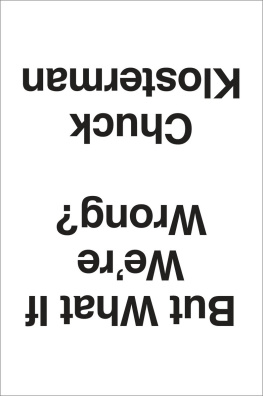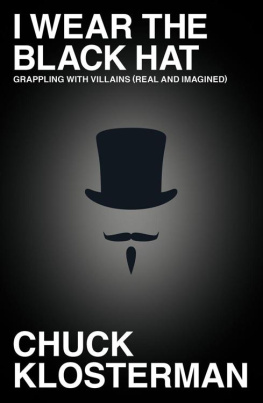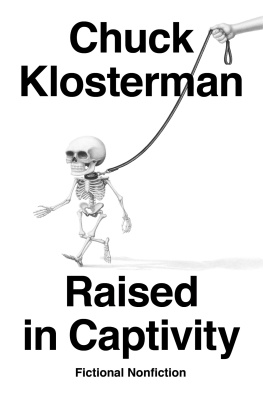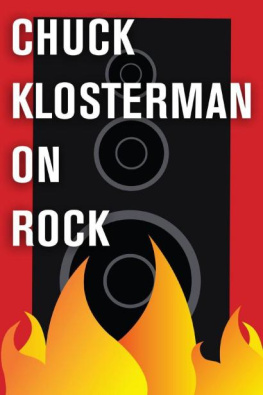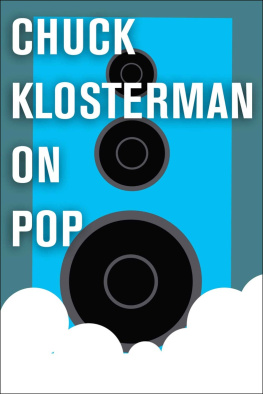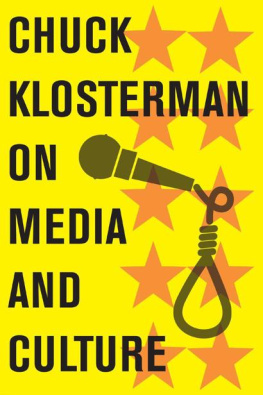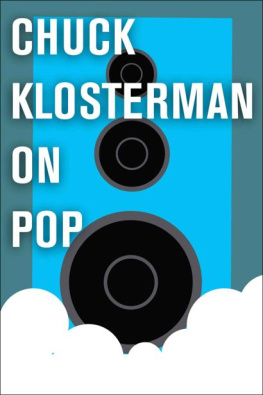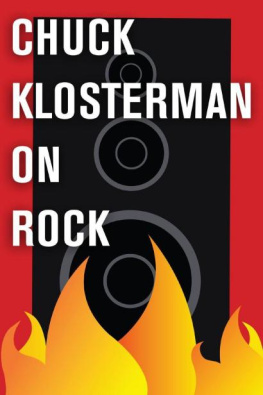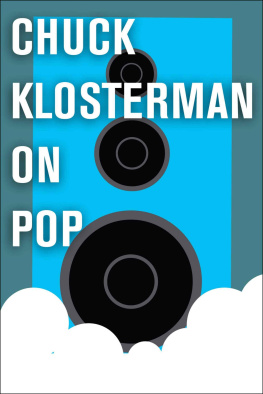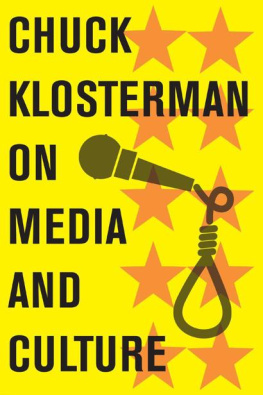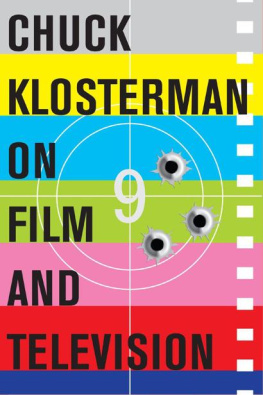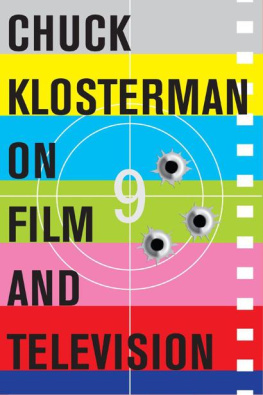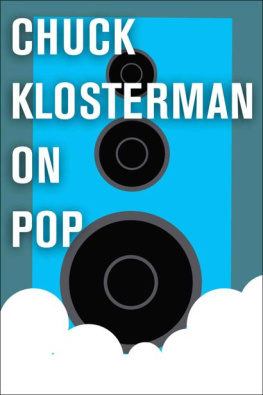Chuck Klosterman - A Book
Here you can read online Chuck Klosterman - A Book full text of the book (entire story) in english for free. Download pdf and epub, get meaning, cover and reviews about this ebook. year: 2022, publisher: Penguin Publishing Group, genre: Religion. Description of the work, (preface) as well as reviews are available. Best literature library LitArk.com created for fans of good reading and offers a wide selection of genres:
Romance novel
Science fiction
Adventure
Detective
Science
History
Home and family
Prose
Art
Politics
Computer
Non-fiction
Religion
Business
Children
Humor
Choose a favorite category and find really read worthwhile books. Enjoy immersion in the world of imagination, feel the emotions of the characters or learn something new for yourself, make an fascinating discovery.
- Book:A Book
- Author:
- Publisher:Penguin Publishing Group
- Genre:
- Year:2022
- Rating:5 / 5
- Favourites:Add to favourites
- Your mark:
- 100
- 1
- 2
- 3
- 4
- 5
A Book: summary, description and annotation
We offer to read an annotation, description, summary or preface (depends on what the author of the book "A Book" wrote himself). If you haven't found the necessary information about the book — write in the comments, we will try to find it.
A Book — read online for free the complete book (whole text) full work
Below is the text of the book, divided by pages. System saving the place of the last page read, allows you to conveniently read the book "A Book" online for free, without having to search again every time where you left off. Put a bookmark, and you can go to the page where you finished reading at any time.
Font size:
Interval:
Bookmark:

Fiction
Downtown Owl
The Visible Man
Raised in Captivity
Nonfiction
Fargo Rock City: A Heavy Metal Odyssey in Rural North Dakota
Sex, Drugs, and Cocoa Puffs: A Low Culture Manifesto
Killing Yourself to Live: 85% of a True Story
Chuck Klosterman IV: A Decade of Curious People and Dangerous Ideas
Eating the Dinosaur
I Wear the Black Hat: Grappling with Villains (Real and Imagined)
But What If Were Wrong? Thinking about the Present As If It Were the Past
Chuck Klosterman X: A Highly Specific, Defiantly Incomplete History of the Early 21st Century
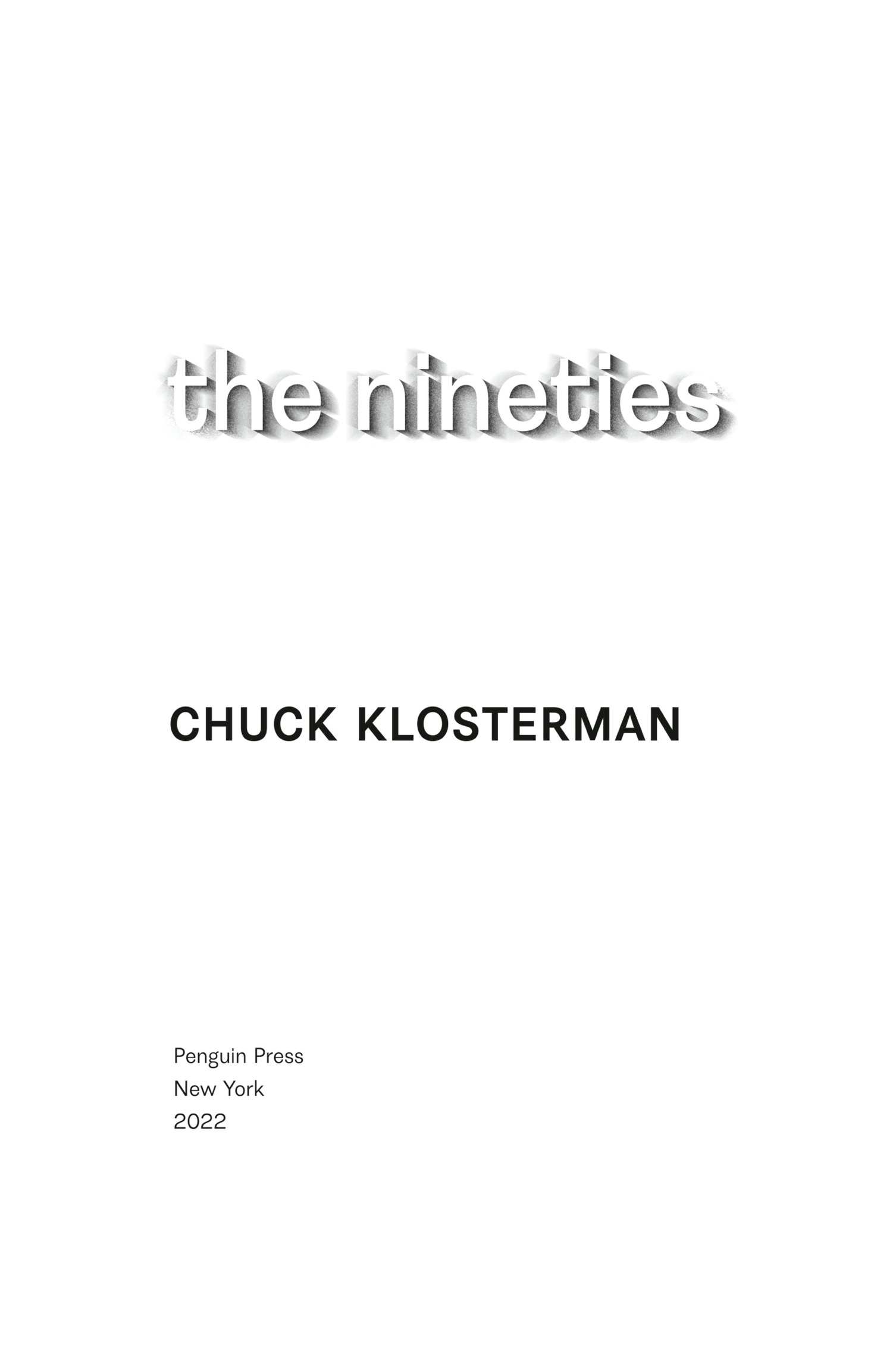
PENGUIN PRESS
An imprint of Penguin Random House LLC
penguinrandomhouse.com
Copyright 2022 by Charles Klosterman
Penguin supports copyright. Copyright fuels creativity, encourages diverse voices, promotes free speech, and creates a vibrant culture. Thank you for buying an authorized edition of this book and for complying with copyright laws by not reproducing, scanning, or distributing any part of it in any form without permission. You are supporting writers and allowing Penguin to continue to publish books for every reader.
The Modern Things
Words and Music by Bjrk Gumundsdttir and Graham Massey.
Copyright 1995 by Jora Ehf and Universal Music Publishing Ltd.
All Rights for Jora Ehf Administered by Kobalt Songs Music Publishing.
All Rights for Universal Music Publishing Ltd. in the United States and Canada
Administered by Universal - PolyGram International Publishing, Inc.
All Rights Reserved. Used by Permission.
Reprinted by Permission of Hal Leonard LLC.
library of congress cataloging-in-publication data
Names: Klosterman, Chuck, 1972 author.
Title: The nineties : a book / Chuck Klosterman.
Other titles: 90s
Description: New York : Penguin Press, 2022. | Includes bibliographical references and index.
Identifiers: LCCN 2021014971 (print) | LCCN 2021014972 (ebook) | ISBN 9780735217959 (hardcover) | ISBN 9780735217973 (ebook)
Subjects: LCSH: Popular cultureUnited StatesHistory20th century. | United StatesCivilization1970 | United StatesSocial life and customs1971 | United StatesIntellectual life20th century.
Classification: LCC E169.12 .K556 2022 (print) | LCC E169.12 (ebook) | DDC 306.0973/09049dc23
LC record available at https://lccn.loc.gov/2021014971
LC ebook record available at https://lccn.loc.gov/2021014972
Cover design: Darren Haggar
Cover photograph: Kelli Prewett
Book design by Daniel Lagin, adapted for ebook by Shayan Saalabi
pid_prh_6.0_139121902_c0_r0
For Melissa, Silas, and Hope,
and in memory of
Jimmy Meiers (19892020) and J. Thomas Kidd (19532020)
All the modern things
Like cars and such
Have always existed
Theyve just been waiting in a mountain
For the right moment
Bjrk, The Modern Things (1995)
Contents
The nineties began on January 1 of 1990, except for the fact that of course they did not. Decades are about cultural perception, and culture cant read a clock. The 1950s started in the 1940s. The sixties began when John Kennedy demanded we go to the moon in 62 and ended with the shootings at Kent State in May of 1970. The seventies were conceived the morning after Altamont in 1969 and expired during the opening credits of American Gigolo, which means there were five months when the sixties and the seventies were happening at the same time. It felt like the eighties might live forever when the Berlin Wall fell in November of 89, but that was actually the onset of the euthanasia (though it took another two years for the patient to die).
When writing about recent history, the inclination is to claim whatever we think about the past is secretly backward. Most Americans regard the Seventies as an eminently forgettable decade, historian Bruce J. Schulman writes in his book The Seventies. This impression could hardly be more wrong. In the opening sentence of The Fifties, journalist David Halberstam notes how the 1950s are inevitably recalled as a series of black-and-white photographs, in contrast to how the sixties were captured as moving images in living color. This, he argued, perpetuates the illusionary memory of the fifties being slower, almost languid. Theres always a disconnect between the world we seem to remember and the world that actually was. Whats complicated about the 1990s is that the central illusion is memory itself.
The boilerplate portrait of the American nineties makes the whole era look like a low-risk grunge cartoon. That portrait is imperfect. It is not, however, wildly incorrect. The decade was heavily mediated and assertively self-conscious, but not skewed and misshapen by the internet and social media. Its trajectory can be traced with accuracy. Almost every meaningful moment of the nineties was captured on videotape, along with thousands upon thousands of trivial moments that meant nothing at all. The record is relatively complete. But that deluge of data remained, at the time, ephemeral and unavailable. It was still a present-tense existence. For much of the decade, Seinfeld was the most popular, most transformative live-action show on television. It altered the language and shifted comedic sensibilities, and almost every random episode was witnessed by more people than the 2019 finale of Game of Thrones. Yet if you missed an episode of Seinfeld, you simply missed it. You had to wait until it was re-aired the following summer, when you could try to manually record it on VHS videotape. If you missed it again, the only option was to go to a public archive in Los Angeles or Manhattan and request a special viewing on eight-millimeter videotape. But of course, this limitation was not something people worried about, because caring that much about any TV show was not a normal thing to do. And even if you did, you would pretend you did not, because this was the nineties. You would be more likely to claim that you didnt own a television.
That, more than any person or event, informed the experience of nineties life: an adversarial relationship with the unseemliness of trying too hard. Every generation melodramatically assumes it will somehow be the last, and there was some of that in the nineties, toobut not as much as in the decade that came before and far less than in the decades that would come after. It was perhaps the last period in American history when personal and political engagement was still viewed as optional. Many of the polarizing issues that dominate contemporary discourse were already in play, but ensconced as thought experiments in academic circles. It was, in retrospect, a remarkably easy time to be alive. There were still nuclear weapons, but there was not going to be a nuclear war. The internet was coming, but reluctantly, and there was no reason to believe it would be anything but awesome. The United States experienced a prolonged period of economic growth without the protracted complications of a hot or cold war, making it possible to focus on ones own subsistence as if the rest of society were barely there. Concerns and anxieties were omnipresent, but the stakes were vague: Teenagers were allegedly obsessed with angst, and the explanation as to why was pondered constantly without any sufficient answer. It didnt even seem like those asking the question particularly cared what the explanation was, or at least not until twelve kids were massacred by their classmates at a Colorado high school in 1999. But by then it was too late, and the question seemed less important than the problem, and the problem had just become what was now considered normal.
Font size:
Interval:
Bookmark:
Similar books «A Book»
Look at similar books to A Book. We have selected literature similar in name and meaning in the hope of providing readers with more options to find new, interesting, not yet read works.
Discussion, reviews of the book A Book and just readers' own opinions. Leave your comments, write what you think about the work, its meaning or the main characters. Specify what exactly you liked and what you didn't like, and why you think so.


